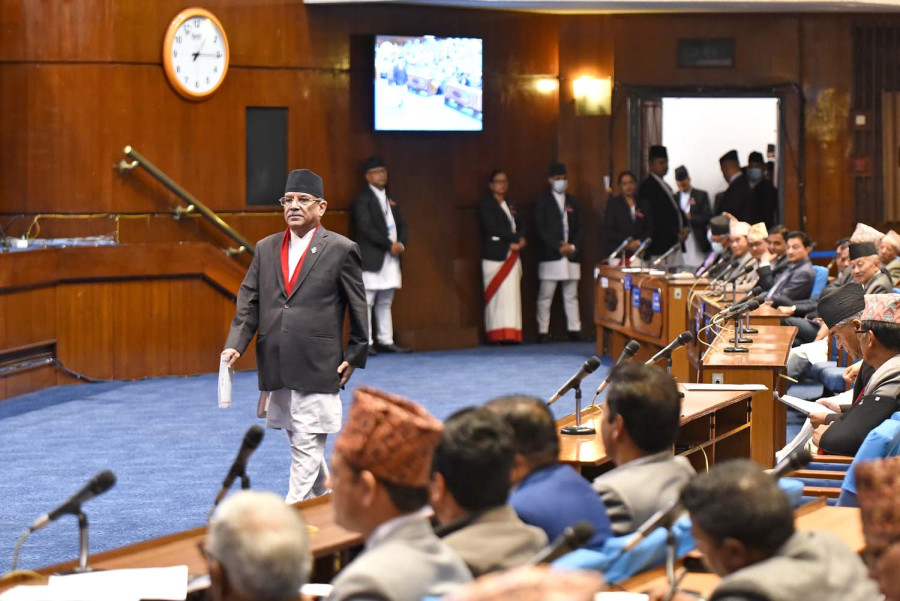Editorial
After the vote
There are no signs that Prime Minister Dahal wants to change his errant ways.
Prime Minister Pushpa Kamal Dahal had to prove his parliamentary majority for a second time in barely two and half months. There could perhaps be no better example of an unstable polity than this. With at least two more governments set to be elected in the next five years, the country will have no respite from this depressing trend—with all its attendant problems. Whenever there is a change in government or its composition, there is also an accompanying shift in state policies. Seldom do incoming ministers take ownership of the policies of their predecessors, instead preferring to come up with their own. They also like working with their own pick of bureaucrats. Thus, when new ministers are inducted, the bureaucracy, the country’s permanent establishment, undergoes a major shake-up too. Top bureaucrats are wantonly transferred as ministers try to bring in those whose personal interests closely align with their own. The old bureaucrats who are transferred take away whatever little institutional memory there is.
The set of priorities of the previous ruling Maoist Centre-UML dispensation were quite different from the priorities of the current Maoist Centre-Nepali Congress coalition. For one, the two new partners seem to see eye to eye on transitional justice, and are intent on pushing through a flawed Transitional Justice Bill through Parliament. They will do so because their interests align and not because they are serious about fair and timely completion of the transitional justice process. Even when it comes to handling the economy, which has been buffeted by heavy winds from all sides of late, the Nepali Congress, Dahal’s new coalition partner, pursues a completely different set of priorities compared to the UML, his previous coalition partner.
All these are signs that the next five years too will be wasted in terms of governance, strengthening rule of law and the country’s overall development. The national pride projects have long been in limbo as the fast-changing cast of characters in the government cannot devote enough time and resources to them. Investors, both foreign and domestic, continue to be deterred by the unstable political and policy regimes. When incoming ministers know they may only have a short time in office, their focus is not on pushing long-term development projects but on pursuing short-term personal interests.
Prime Minister Dahal claims to understand the problems of bureaucracy and vows not to disrupt its smooth functioning. But his actions belie his words. How does he expect anyone to take his words seriously when he is ready to jump in bed with just about anyone to preserve his premiership? Dahal of late likes to talk about leaving behind a strong legacy as prime minister. Yet he has done little to suggest that he cares even an iota about the judgment of posterity. Otherwise, Dahal can easily prove his seriousness by appointing clean and qualified people to top state posts and giving them room to work freely and independently. In that case, he should also already be planning for a smooth transition of power when his term as prime minister ends. Unfortunately, seldom has the current prime minister displayed such foresight.




 10.12°C Kathmandu
10.12°C Kathmandu













